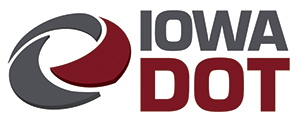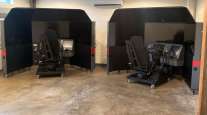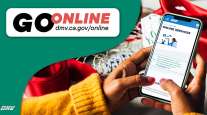Staff Reporter
Iowa DOT Builds CDL Exam App to Improve Pass Rate

About 60% of commercial driver license applicants in Iowa fail the knowledge exam on their first try, according to Mindi Nguyen, assistant to the director of the state Department of Transportation’s Motor Vehicle Division. But with a new mobile application, Iowa DOT will attempt to redress that.
The department selected Higher Learning Technologies, a company that specializes in mobile learning tools, to design an app that serves as a study guide for the CDL exam. The company signed a contract to work with the state in June.
The app will include modules with content from the Iowa Truck Information Guide and the American Association of Motor Vehicle Administrators’ commercial driver manual.
Higher Learning Technologies, which is based in Coralville, Iowa, was founded by two University of Iowa students — one pursuing a doctorate of nursing and the other a dental degree — who grew frustrated with flash cards so they built their own app.

“They have a really good understanding of what it takes to help learners ingest material,” said Melissa Spiegel, director of the Office of Driver Services at Iowa DOT. “We’re hoping to help individuals pass the test and understand information presented to them.”
Trucking is an important industry for Iowa, despite significant issues with the pass rate of the CDL exam.
According to Rich Lineback, vice president of strategic partnerships at Higher Learning Technologies, Iowa has the fourth-highest concentration of commercial drivers in the nation among its workforce. There are 180,841 CDL holders registered in the state, according to Iowa DOT.
“Iowa’s got a huge trucking community. Iowa DOT is being very proactive to try to come up with better ways to prepare commercial driving students to pass,” Lineback said. “Once the commercial drivers pass, they want a better trained workforce to ensure public safety.”
The app, tentatively scheduled to launch in November, intersperses lessons with “micro-quizzes,” Lineback said. Users can return to chapters and re-take quizzes on subjects they are having trouble grasping. According to Lineback, the app uses “adaptive techniques,” meaning an incorrect response will be followed by an easier question, while a correct answer will be met with a more difficult question.

“With the CDL test, where you have a real range of performance, it’s essential in that kind of environment to be able to customize that experience to this broad range of learning styles,” Lineback said. “We’re dealing with sort of a different population from the highly trained medical and dental students. Let’s find out where the student is at and try to diagnose that with a presentation of questions that can bridge their knowledge gaps.”
Lineback said a person’s progress is synced between Apple, Android and web applications, so users can take the first half of a chapter test on their laptop and the second half on their phone without losing any of their saved work. The platform also has an “improve this” feature for users to give feedback to Higher Learning Technologies’ customer service team, Lineback said.
Spiegel said the app will be free for Iowa users, who can register for it with the last few digits of their driver’s license number. Drivers from other states will have to pay for the app.
Lineback said Iowa will be the first state to sponsor its own CDL exam app and Higher Learning Technologies is in talks with other state DOTs interested in similar projects.
“This is the first one and that’s why it’s so exciting,” Lineback said. “Iowa’s really the trend-setter.”
In addition to improving the CDL exam pass rate, this app may also attract more drivers to the industry, according to Tom Grojean, chairman of the board for Hirschbach Motor Lines, a trucking company based in Dubuque, Iowa. Hirschbach ranks No. 92 on the Transport Topics Top 100 list of for-hire carriers in North America.
According to American Trucking Associations, the industry was short 48,000 drivers in 2015. Grojean said that young people, who spend hours a day on their phones and are comfortable with using apps, may consider trucking as a career option with this new tool.
“I think it’s something that could attract more drivers to the industry. The young generation is so much more tech-savvy. This is kind of right up their alley,” Grojean said. “I think it’s a great idea.”




